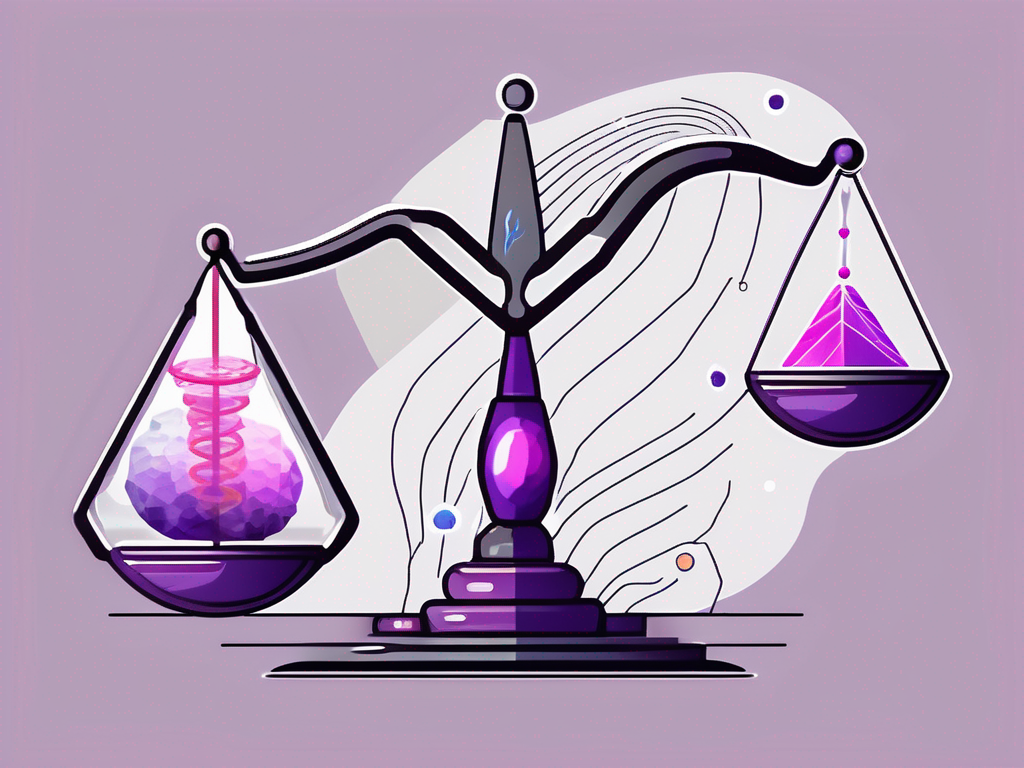In today’s world, where information is just a click away, we often come across various claims about alternative healing methods for cancer. One such method that has gained popularity in recent years is Quantum Healing. Proponents of this approach believe that by harnessing the power of quantum mechanics, cancer patients can achieve miraculous healing. But is there any truth to these claims? In this article, we will explore the myths surrounding Quantum Healing and uncover the scientific perspective behind it.
Introduction: What is Quantum Healing?
Before we dive into the myths, let’s first understand what Quantum Healing is all about. Quantum Healing is based on the principles of quantum mechanics, a branch of physics that studies the behavior of matter and energy at a subatomic level. It suggests that by shifting our conscious focus and intention, we can influence the energy fields in our bodies, leading to healing.
Advocates of Quantum Healing argue that this approach can be used as a complementary therapy alongside conventional medical treatment for cancer, or even as an alternative. They claim that it can enhance the body’s natural healing processes, improve overall well-being, and even lead to remission or cure.
One of the key concepts in Quantum Healing is the idea that everything in the universe is interconnected through energy. Proponents believe that our thoughts and emotions emit vibrations that can impact our physical health. By harnessing the power of positive thinking and focusing on healing intentions, individuals can supposedly tap into this interconnected energy and promote healing within themselves.
Quantum Healing also emphasizes the importance of mindfulness and meditation in facilitating the healing process. Practitioners often encourage patients to cultivate a state of deep relaxation and mental clarity to help align their energy fields and promote the flow of healing energy throughout the body. By quieting the mind and fostering a sense of inner peace, individuals may be able to enhance the effectiveness of Quantum Healing techniques.
Myth vs. Reality: The Scientific Perspective on Quantum Healing
While the idea of Quantum Healing may sound intriguing, it is essential to separate fact from fiction. Many of the claims made about the efficacy of Quantum Healing in treating cancer are not supported by scientific evidence. The reality is that there is currently no scientific basis to suggest that Quantum Healing alone can cure cancer.
Scientists and medical professionals acknowledge that positive mindset and emotional support play a crucial role in supporting cancer patients. However, it is important to note that these factors are not exclusive to Quantum Healing and can be achieved through various other means, such as counseling, therapy, and support groups.
Moreover, the concept of Quantum Healing is often associated with the principles of quantum physics, which describe the behavior of matter and energy at a subatomic level. While quantum physics has revolutionized our understanding of the universe, its application to healing practices remains a topic of debate among scientists.
Proponents of Quantum Healing argue that the interconnectedness of energy fields within the body can be manipulated to promote healing. However, skeptics point out that the mechanisms proposed by Quantum Healing proponents lack empirical evidence and contradict established principles of biology and medicine.
Understanding Quantum Mechanics: No Miracle Cure
Quantum mechanics is a complex field of study that has brought about revolutionary breakthroughs in our understanding of the universe. However, it is important to recognize that the principles of quantum mechanics do not provide a magical solution to cancer.
Cancer is a multifaceted disease that requires comprehensive medical treatment, including surgery, chemotherapy, radiation therapy, and targeted therapies. While Quantum Healing might have some psychological and emotional benefits, it should not be viewed as a substitute for evidence-based medical interventions. Medical research has shown that conventional treatments backed by rigorous scientific studies offer the best chances of successful outcomes for cancer patients.
The Dangers of Relying on Pseudoscience
One of the dangers associated with embracing Quantum Healing as a primary modality for cancer treatment is the potential for individuals to forgo or delay necessary medical interventions. By relying solely on unproven alternative methods, patients may miss out on the advancements in medical science that have proven to be effective in fighting cancer.
Pseudoscience, which encompasses claims made without scientific evidence, can give false hope and mislead vulnerable individuals. It is crucial for cancer patients and their loved ones to approach any alternative healing method, including Quantum Healing, with a critical mindset and consult with qualified medical professionals before making any decisions.
Positive Mindset and Social Support as the Essence of Quantum Healing
While Quantum Healing may not possess the mystical healing powers it is often attributed, it does emphasize the importance of positive mindset and social support. A positive mindset can help cancer patients cope with their diagnosis, treatment, and the challenges they face along the way.
Having a strong support system of friends, family, and healthcare professionals can provide emotional backing and foster a sense of belonging. This support encourages patients to maintain a positive outlook during their cancer journey and focus on their overall well-being.
The Power of Positive Thinking: What Really Works
Positive thinking can have a profound impact on our mental and emotional well-being, but it is essential to distinguish between positive thinking and false claims. Truly positive thinking involves accepting the reality of a cancer diagnosis while maintaining a hopeful and optimistic attitude.
Cancer patients may benefit from techniques such as mindfulness, meditation, visualization, and relaxation exercises. These practices can help alleviate stress, improve sleep patterns, and promote overall healing. While these methods are not exclusive to Quantum Healing, they can be integrated into a comprehensive treatment plan to enhance the well-being of cancer patients.
Complementary Therapies That Support (NOT Replace) Medical Treatment
Complementary therapies, when used alongside evidence-based medical treatments, can be valuable in supporting cancer patients’ overall well-being. These therapies include acupuncture, massage, yoga, and nutritional counseling. They can help manage side effects of treatments, reduce stress, and improve quality of life.
It is crucial to note that while these complementary therapies can be beneficial, they should never be used as a replacement for medical treatments. Consultation with healthcare professionals and complementary therapy providers can ensure that treatments are safe, appropriate, and coordinated for the best outcomes.
Conclusion: Informed Choices for Better Health
When faced with a cancer diagnosis, we are often bombarded with a multitude of information and alternative healing methods. It is essential to approach these methods with caution and seek scientific evidence to support their claims.
Quantum Healing, while captivating in principle, lacks scientific backing when it comes to cancer treatment. Instead, cancer patients should focus on evidence-based medical interventions, maintaining a positive mindset, and seeking support from loved ones and healthcare professionals.
By making informed choices and embracing a comprehensive approach to cancer treatment, we can ensure that patients receive the best possible care and support on their journey towards better health.






